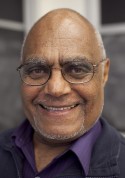
The Winning Words Initiative:
A Midwest Regional Resource Network for Precollegiate Philosophy

Sponsored by The University of Chicago
Civic Knowledge Project
Saturday, November 2, 2013
9:00 a.m. to 4:30 p.m.
Mandel Hall, Reynolds Club
The University of Chicago
1131 East 57th Street, Chicago, Illinois
Join leading philosophers and educators from across the U.S. for a day of exciting talks, panel discussions, and demonstrations highlighting the importance of fostering philosophy at the k-12 level.
Be part of an important movement to bring philosophy to young people, who love to grow as creative thinkers by engaging with such questions as "What is the good life?"
The event is free and open to the public. Please RSVP to 773.702.9626 by October 31, 2013. For information on the agenda, parking or lodging, please call 773.702.0626.
|
A Members Only Event!!!
Boo! at the Zoo!!!

Saturday and Sunday, October 26-27
11:00 a.m. to 4:00 p.m.
Brookfield Zoo
First Avenue between Ogden and 31st Street
Brookfield, Illinois
FREE for Black Star Members (Tickets are limited)
Little ghosts and goblins of all ages are sure to have a howlin' good time! Our not-so-scary and fun-filled event has something for the entire family to enjoy:
 
Please call 773.285.9600 for free tickets or for more information.
|

Question: Do we need Algebra in 2013?
Answer: Yes, because we're in a new age, and being a full citizen with constitutional power requires it.
By ROBERT "BOB" PARRIS MOSES
We need algebra if we all want to be twenty-first century "Constitutional People." Why? Let's consider this as a series of questions and answers: What is happening?
The planet is transitioning from its Industrial Age to its Information Age. The Industrial Age's mechanized physical labor demanded "citizens" with reading and writing literacy standards, plus Post-Office arithmetic, to drive its economies. Those denied access to these literacies-like Mississippi-Delta sharecroppers so famously embraced by the Student-Nonviolent-Coordinating-Committee (SNCC)-were Industrial Age "serfs."
What happened? We began our nation with two distinct classes of "WE THE PEOPLE":
1. Constitutional People
2. Constitutional Property (cf. Article IV, Section 2, paragraph 3), a.k.a. enslaved African-Americans.
A Constitutional conundrum lasting for three-quarters of a century (1787- 1865) until Constitutional People went to war against one another over their Constitutional Property.
We should begin by elevating into the Constitution their access to a Quality Public School Education: "Welcome young people into the class of Constitutional People".
Do you all have to master algebra? Yes, if you all intend to be twenty-first century "Constitutional People" rather than Information Age 'serfs'.
Click Here to Read Full Article
|

Question: Do we need Algebra in 2013?
Answer: No. Let's stop teaching math like an abstraction and start teaching it as a human practice.
By ROCHELLE GUTIÉRREZ
Mastering algebra has clear benefits. It allows one to identify simplicity in a complex world, and to see relationships between groups. Algebra can position a person to be accepted into college and a math-based career with higher earning potential. Some might even say it can prepare a person for the technological world in which we live.
Yet, the pre-occupation with Algebra as a U.S. topic in mathematics courses is simply a remnant of our push to get kids to prepare for college, not life. That is, with algebra as the path to calculus, and with calculus as the gatekeeper to college entrance or graduation, few students study geometry, probability, or statistics to the same extent.
Algebra is difficult for many people because it relies on abstraction and is written in its own language - a dense, symbolic form (x + y = z). There is a societal bias at work. Thus, those who cannot learn Algebra are seen as unintelligent. When students are told so, their identity can be affected negatively, in ways that persist long into adulthood.
As we progress as a nation and push to have more students master Algebra and enter STEM fields, we must consider how this emphasis will influence the kinds of citizens we create.
Learning and mathematics should not be seen as disembodied acts in which one's identity and body is left at the door, as work is done with brain and pencil. Rather, mathematics should be seen as a human practice.
Click Here to Read Full Article
|
Black parents from Gary, Hammond, Michigan City, South Bend and Indianapolis, Indiana; Racine, Beloit, Milwaukee and Madison, Wisconsin; Peoria, Springfield, Rockford, Aurora, Bolingbrook, Elgin, Joliet, Kankakee and North Chicago, Illinois; Benton Harbor, Michigan; Davenport, Iowa; St. Louis, Missouri and all cities in the midwest should attend:

Saturday, November 2, 2013
9:00 am to 3:00 pm - FREE!!!
Spencer Elementary Technology Academy
214 N. Lavergne (5000 west)
Chicago, Illinois
Call 773,285.9600 to RSVP or for more information.
 |
Solution: The Key to Eliminating Racial Academic Achievement Gap Is Parents' Willingness to Learn, Grow, Build Skills and Model Behaviors for their Children

Want to Improve Students' Educational Outcomes? Start with Their Parents.
"...blaming teachers for socio-economic achievement gaps is a wrong-headed approach to the problem."
October 9, 2013
On Tuesday, results of a study called the Program for the International Assessment of Adult Competencies were released by the Organization for Economic Cooperation and Development (OECD), bringing to light not altogether surprising information: American adults--not just kids--lag behind their global peers in math, reading, and problem-skills.
The study supports the observations my colleagues and I have routinely made, that parental investment in education--actively, by encouraging their kids to perform well academically, as well as passively, by setting an example of valuation of learning--is the key component to student success.
What I am saying is that the correlation between parents' level of education and their children's shows some important causations: Parents are better able to do everything from assisting with homework, to navigating the bureaucracies of school systems, to helping kids make decisions regarding course-work and long-term goal setting, to promoting an environment of literacy and analytic thinking in the home, the higher their own skill and knowledge levels.
The study also underscores what many critics of education reform have been saying all along, that blaming teachers for socio-economic achievement gaps is a wrong-headed approach to the problem.
There are teachers of all levels of ability in schools all across America; the strongest correlate to high student achievement is not teacher quality (since that tends to be determined after-the-fact anyway, by looking at students' test scores) but the precursory factors of their parents' income and education levels, which are themselves linked.
Better solutions to address achievement gaps include more affordable post-secondary continuing education opportunities and job-training courses (which nations in Northern Europe already implement consistently, making parents' socio-economic status less difficult obstacle to overcome in these countries), "wraparound" programs through schools wherein parents can learn computer skills and ESL in the evenings, and increased support for first-generation college applicantsthroughout their entire journey towards post-secondary education, starting as they enter high school.
Reform efforts that target root problems of low achievement (rather than addressing ancillary issues, like test scores) will succeed on a much broader level.
Click Here to Read Full Article
|


No comments:
Post a Comment